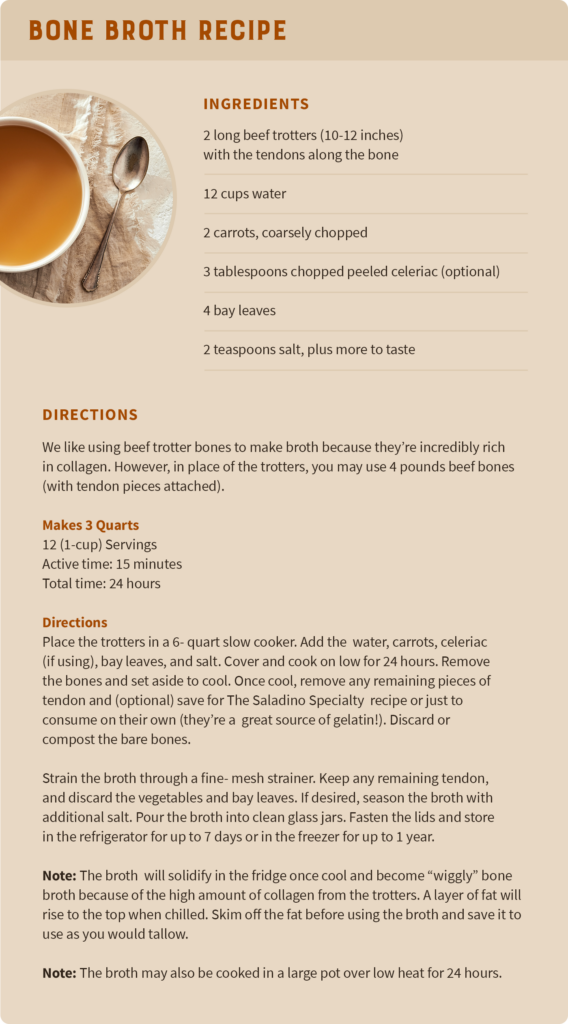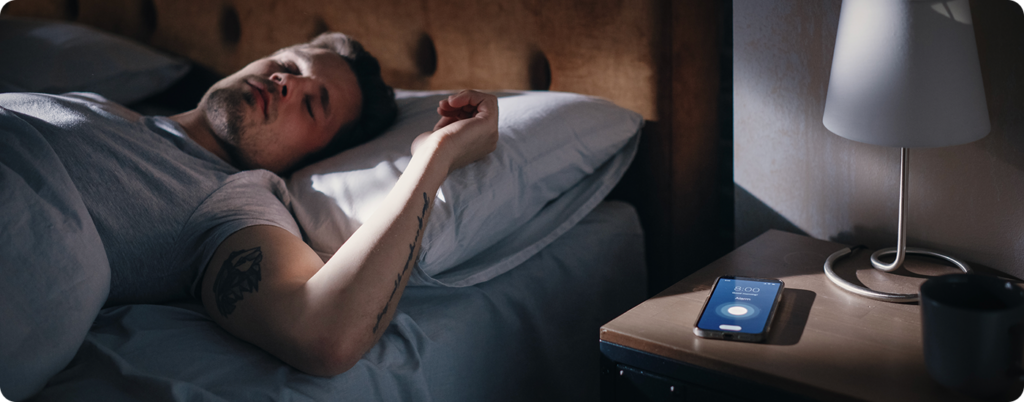Let’s talk about how to improve sleep (naturally, of course).
While there are many medications, prescription drugs and medical interventions that can improve your sleep in the short-term, are they really healthy in the long-term? We believe natural remedies are best.
Here’s the problem: in recent years, our modern lives have pulled us away from nature, causing many health issues.
Sleep is one health factor that most people forget, but it’s likely one the most important factors that contributes to your overall health.
So, How Important is Sleep?
Sleep is essential for any health journey. No matter the age, sleep is vital for cognitive function, mood, energy levels, and immune function (1, 2).
Yet, an estimated 70 million Americans have a chronic sleep disorder such as insomnia or sleep apnea (3). Some experts also suggest that 80% of sleep disorders may go undiagnosed, given the difficulty in identifying symptoms. Most societies are not even meeting the general suggestion of 7-9 hours of sleep per night (4).
In most cases, our modern sleep environment is completely different than what we would’ve encountered in the past. Spending less time outdoors, less time in natural light, and more time on electronic devices is common. These can all lead to decreased sleep quality or duration.
Your sleep doesn’t have to suffer despite these changes!
In this article, we have 15 suggestions (in no particular order) to help you get to sleep and wake up feeling refreshed.
Shall we?
15 Tips for How to Improve Sleep
Let’s walk through our tips on sleep hygiene!
1. Focus on Key Nutrients
Dialing in the diet is one of the most effective ways to optimize sleep, given that it affects metabolic health tremendously.
To help support sleep, consume plenty of bone broth and connective tissue. These foods contain an amino acid called glycine which balances out the methionine abundant in muscle meat and plays several roles in our physiology (5).
Glycine serves as a neurotransmitter in the brain and lends itself to proper relaxation and deep sleep (6). Tendons, connective tissue, and bone broth are incredible sources of glycine.
Skin, Hair & Nails is an excellent option from our sleep stack if these foods aren’t available.
If you’d like to make your bone broth, here’s a simple recipe to follow:

2. Avoid Eating Too Late
Eating dinner 3-5 hours before bedtime is the sweet spot for many people, but it can take experimentation to find what’s best for you (7,8). Some people do well with a light snack before bed, but a large meal can hinder your sleep quality.
As noted in the study above, a high caloric intake shortly before bed can delay sleep onset. Sleep generally decreases digestive activity, but excessive food intake too close to bed can alter this pattern. These sleep disruptions may also contribute to poor dietary choices or weight gain in some instances.
3. Limit Artificial Lighting
Avoiding bright lights prior to bed is essential.
Bright lights suppress the release of melatonin from the pineal gland and keep us feeling awake (9). Blue light (from phones, computers, etc.) can even trick the cells into thinking it’s daytime after the sun has gone down (10).
Here are some quick suggestions to cut down on artificial light:
- Keep your bedroom as dark as possible
- Avoid screens 2-3 hours before bedtime
- Incorporate red light bulbs in your living spaces (11)
- Use tallow candles
- Wear blue light-blocking glasses
- Use a sleep mask or cover your eyes with a dark cloth or T-shirt
4. Find Your Ideal Temperature
Cooler temperatures can help promote deep sleep. The optimal temperature range tends to be between 66 and 69 degrees Fahrenheit (12), but there can be some variability depending on individual preference and seasonality.
5. Keep Sounds to a Minimum
It’s crucial to ensure no random noises are causing sleep disturbances. In almost every home, many little sounds happen throughout the night. They’re often not loud enough to fully wake you from sleep, but they are loud enough to disrupt deep sleep, affecting how you feel the following day.
A great way to combat this is to use a fan or white/pink noise machine to drown out sounds effectively and allow for uninterrupted deep sleep.
6. Relax and “Wind Down”
Winding down at the end of the day and getting away from screens can help you relax and settle in for a night’s rest.
Many like to use this time to spend time with family, take a walk, journal, or read fiction. Meditation and breathwork are great at this time, too (13)!
7. Get Outside
Our relationship with light has changed dramatically over the past century. The average person is exposed to less sunlight throughout the day and more artificial lighting at night. This appears to have altered sleep patterns in humans (14).
So, getting outside throughout the day (especially after waking) can help you tap into the natural light-dark cycle we evolved with over millions of years.

We’re not telling you to stare at the sun, but spend time outside, evaluate your surroundings, and take some time away from artificial light sources.
8. Keep Naps Short
We all know the feeling of lying awake in bed at night after indulging in a long nap! Unfortunately, this can lead to irregular sleep patterns.
If needed, try to take naps earlier in the day and keep them in the 30-45 minute range.
9. Limit Alcohol
Alcohol consumption can negatively impact sleep quality (especially in the second half of the night)(15). Moderate amounts of alcohol can even reduce levels of melatonin (16). In general, alcohol puts a fair amount of stress on the body, which can add up over time.
It can help you fall asleep quicker, given it’s a sedative, but alcohol before bed may lead to more frequent awakenings. This leaves you longing for additional rest the following day.
10. Monitor Caffeine Intake Before Bed
Hate it or love it, caffeine is a staple for most of the population. If misused, coffee may worsen sleep quality.
Large doses of caffeine close to bedtime can negatively affect REM sleep (17). Even consuming too much caffeine after waking to compensate for low energy can impair sleep patterns (18).
In his discussion with Andrew Huberman, Dr. Matt Walker suggests cutting off caffeine intake about 10 hours before bedtime.
11. Incorporate Daily Activity
It is essential to complete some level of physical activity daily. It can be as simple as taking walks throughout the day, throwing the baseball after dinner, or surfing.
Similarly to caffeine, intense exercise close to bedtime is not advised in most cases as it may leave you feeling energized.
12. Find a Routine
It shouldn’t be so rigid that you can’t sleep if one component is thrown off, but strive to incorporate beneficial practices throughout the day and prior to bed. A combination of the steps listed above can prepare you for a restful night of sleep.
In particular, try to go to sleep and wake up at similar times throughout the week. Find what works best for your circumstances, and do your best to stick to it.
Paul Saladino, MD, has a helpful podcast episode discussing his nighttime routine.
13. Add in Carbohydrates
Remember carbohydrates! Having carbohydrates in the diet seems to improve sleep by pushing tryptophan across the blood-brain barrier (19).
One of the most common pitfalls for low-carb dieters (such as carnivore or keto) is trouble sleeping. In most cases, this can easily be remedied by adding carbohydrates.
14. Ditch Your Devices at Night

Leave your devices on airplane mode in another room, try not to watch TV in bed, or cut off your Wifi at night.
Need an alarm? Opt for a battery-powered alarm clock instead of using your phone.
Each of these steps can limit your blue light exposure and free up time to wind down before bed effectively.
15. Dig Deeper
If you’re already following these steps and still experiencing sleep difficulties, it could be worth working with a medical professional for additional testing. Challenges like sleep apnea and insomnia are widespread nowadays. Even parasites, mold, and other environmental toxins can contribute to sleep difficulties (20, 21).
Feel free to check out IFM Find a Practitioner or the Society of Metabolic Health Practitioners.
Find What Works and Stick to It!
Modern sleep environments can be challenging, but with the above steps… deep and restful sleep is still possible!
You can truly recover by spending time outdoors, getting essential nutrients, being smarter with how you use technology, and crafting an ideal sleep setting.
Again, find what works best for your situation, and feel free to make adjustments when needed. Your body will thank you!
Subscribe to future articles like this: